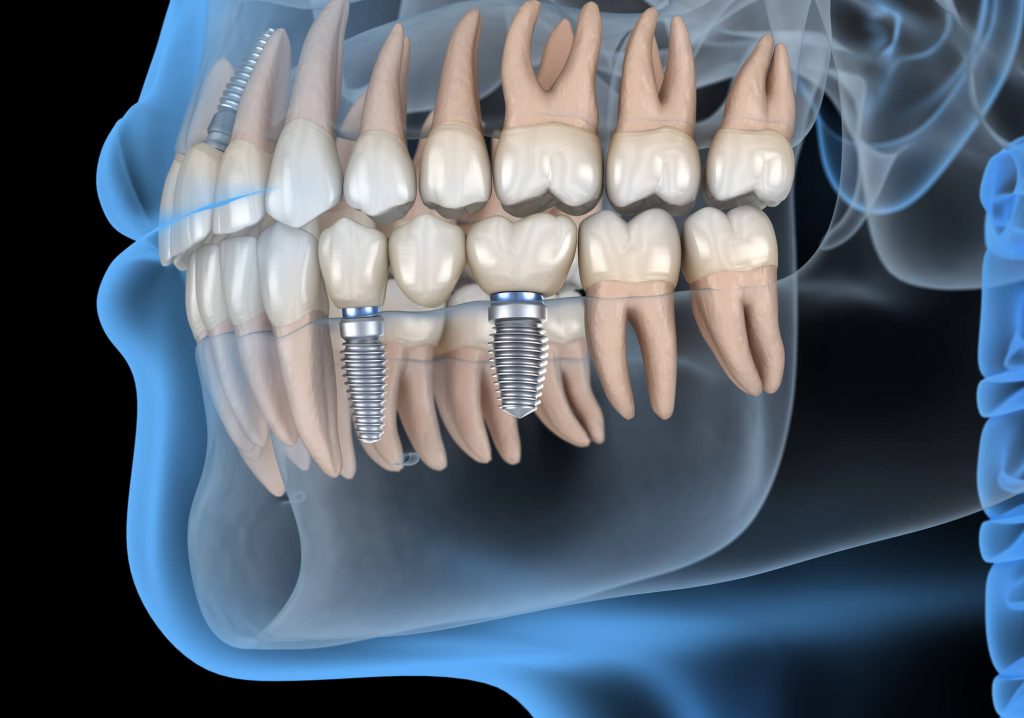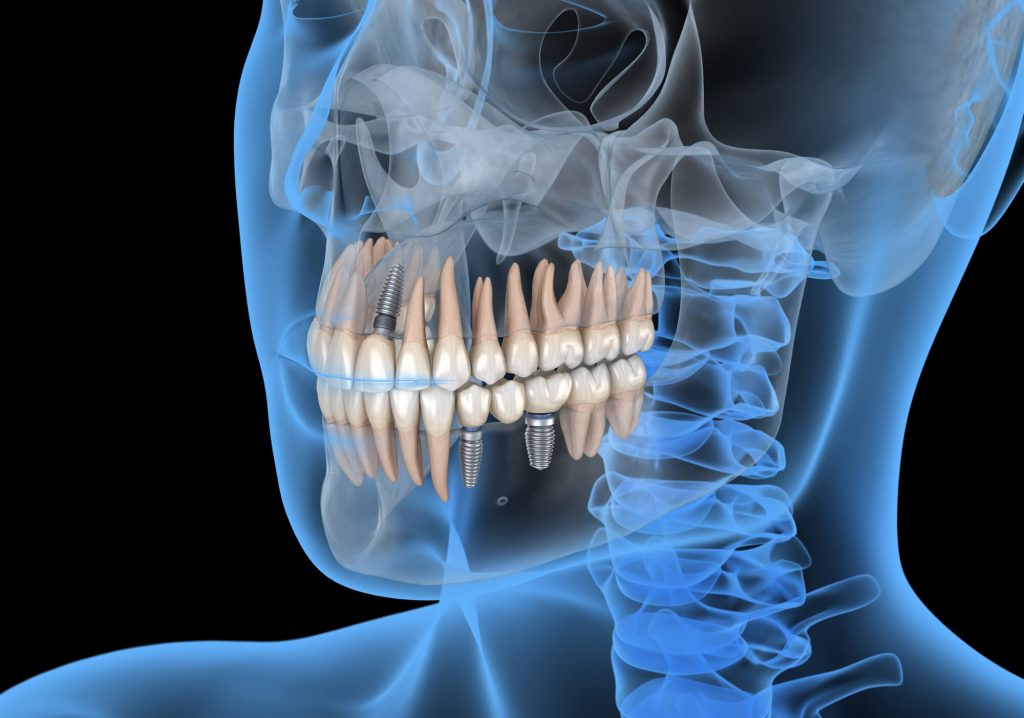When is the best time to consider dental implants in Raleigh? The moment you lose some of your permanent teeth is the best time to ask your dentist about dental implant surgery. Dentists encourage patients to take immediate action, even if it’s just a single tooth in the back of their mouth.
Leaving tooth loss unattended, regardless of its location, leads to bite misalignment, alterations in your facial shape (making you appear older due to bone loss), interference with your chewing and speaking abilities, and negative effects on your self-esteem.
If you’re looking for a tooth replacement option that closely resembles the look and function of natural teeth, your best option is dental implant surgery.

Preparing for Dental Implant Surgery
What are Dental Implants?
Interestingly, you won’t be able to tell if a person is wearing dental implants because of how realistic they look. Dental implants are not teeth but are screw-shaped metal posts that your oral surgeon will implant into your jawbone to replace missing tooth roots. It takes several months for the implants to fuse with your bone tissues in a process known as osseointegration.
Once osseointegration is successfully achieved, it will be followed by adding the abutments (metal connectors) and the dental crowns.
When all three components are combined, you can expect complete restoration of your smile and oral function. For a successful surgery, there are a few things you need to do to prepare yourself before, during, and after the procedure.
How Do You Prepare for the Surgery?
Undergo a Thorough Dental Examination
Even if you choose dental implants, your dentist will first assess your eligibility. Your preference for implants is not enough to consider you as a candidate. A comprehensive dental exam will help your dentist determine if you are a good candidate for the surgery.
The dental exam will reveal essential information about your overall health, the status of your jawbone, and your lifestyle habits. These are essential as they help predict dental implant success. Your dentist will create a tailor-made treatment plan to address your concerns when you pass the eligibility criteria.
Aside from a visual exam, your dentist may also order X-rays to get a clearer vision of your mouth. The process of placing the implant will depend on the following cases:
- If you have a weak immune system, your dentist may prescribe antibiotics before and after the procedure to reduce your risk of infection.
- If you are allergic to certain dental materials or anesthesia, your dentist will look for other options.
- If you are currently taking medications that could potentially cause drug-to-drug interaction with your anesthesia, your dentist may need to make some adjustments to your plan.
- If your jawbone lacks density and volume, your dentist may require you to undergo bone grafts or reshape your jaw to make you eligible for surgery.
- If you are healthy, there’s a possibility that your dentist will allow placing the implant and abutment in one procedure rather than two separate surgeries. Fascinatingly, there are cases where dentists allow adding the implant, abutment, and crown in one appointment.
Take Antibiotics as Prescribed
After receiving an implant, your dentist may prescribe immunosuppressant medications to stop your body from attacking the implants. Before receiving your implants, take your antibiotics religiously. Even if you feel fine, you should complete the entire course. People suffering from chronic conditions are usually asked to take antibiotics.

Prepare Yourself for the Procedure
Your dentist will ask you to fast for about 12 hours before your scheduled surgery if you are under general anesthesia. It’s also important to wear comfortable clothing,
Prepare Your Jaw
The overall health, density, and volume of your jawbone are crucial in predicting the success of dental implant surgery. If your jawbone is unhealthy or has inadequate volume and density, it won’t be able to securely hold your implants in place. In such a case, your dentist will need to restructure your jaw through the following:
- Your dentist may order a bone grafting procedure if your jaw is too soft or too thin to anchor the implants.
- Your dentist may reshape or smoothen your jaw.
- A bulky or oversized jaw may need to be reshaped. Your dentist will remove some parts of it.
- Impacted teeth in the jaw should also be removed so that it doesn’t interfere with the procedure.
Your dentist can push through with the procedure as soon as your jaw has healed.
Plan for Aftercare
After the surgery, swelling and discomfort are expected. During the first few days, you are expected to rest up so that your body can heal quickly. Some of the things you need to prepare for your aftercare are the following:
- Stock up on soft foods like yogurt, smoothies, and shakes.
- Ask for a two-day leave from work.
- Make your schedule for the entire week light so that you can recover fast.
- Avoid exercising until your mouth has healed.

Are You All Set to Receive Dental Implants in Raleigh?
Are you qualified to receive dental implants? If yes, make sure you’re prepared mentally, emotionally, and physically before, during, and after the procedure. At Tryon Family Dentistry, your comfort and satisfaction are our priority. We offer a wide array of dental treatments bespoke to your needs. Contact us today for more information.

